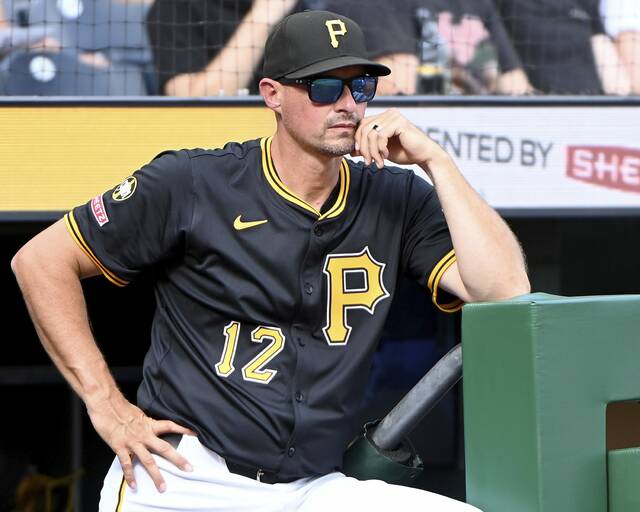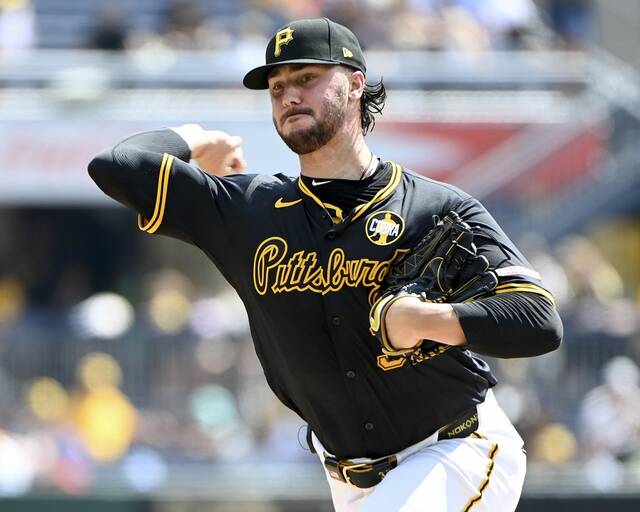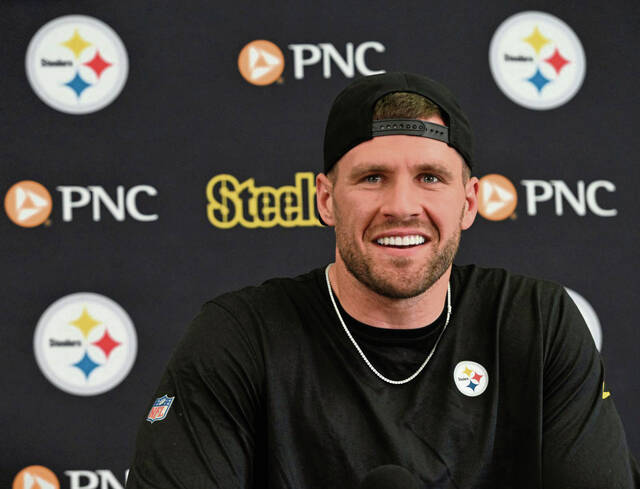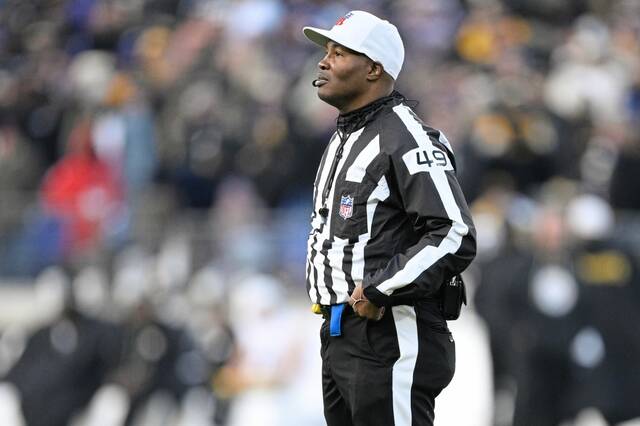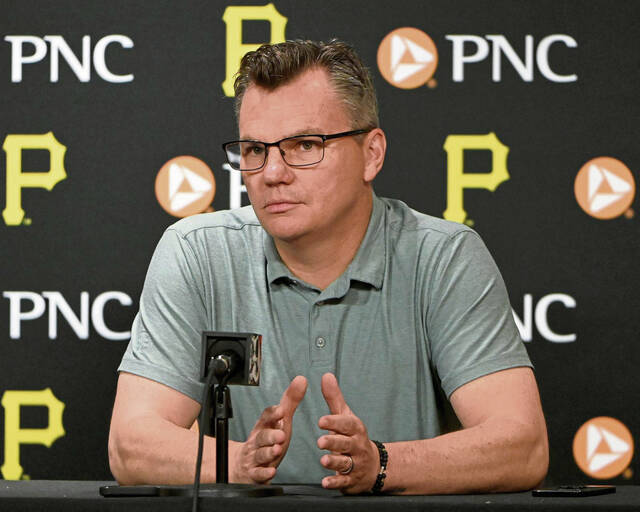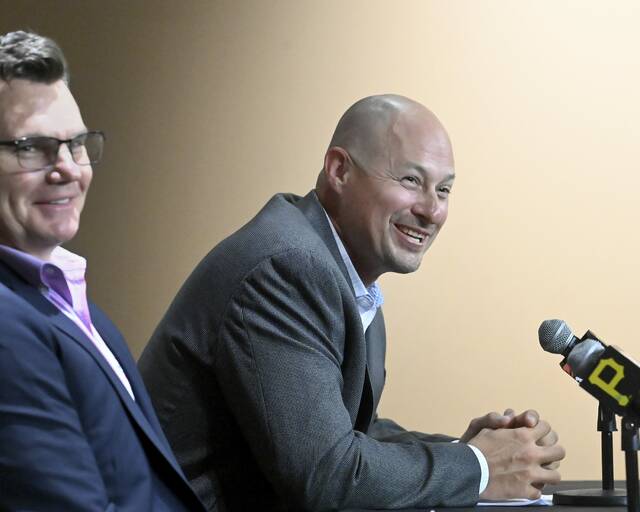When Sean Gibson got word MLB officially was recognizing the Negro Leagues, he spent Wednesday taking celebratory phone calls from the descendants of Satchel Paige and Buck Leonard.
The great-grandson of Josh Gibson is the executive director of a foundation in the heralded slugger’s name and spearheading a campaign to have baseball’s MVP Award renamed in his honor. So when Sean Gibson saw the news of the long-awaited recognition for the greatness of Josh Gibson and other Black ballplayers who were banned from the majors until 1947, he cheerily claimed, “Christmas came early for the Gibson family.”
“People ask me, How do I feel about it? It’s an honor, and we’re excited about it,” said Gibson, who is promoting the MVP name change on the JG20MVP.com and JoshGibson.org websites.
“I’d say if Josh wasn’t in this MVP race with Frank Robinson and Branch Rickey, I wouldn’t have too much to say about it. It’s a bigger argument for Josh. When you look at his stats, he’s right up there with MVPs and Hall of Famers.
“When I post things on social media about the MVP, the No. 1 comment is — and it’s ridiculous — that Josh didn’t play in the majors. You don’t think I know that? That’s not what it’s about. It’s about redemption. Now that Josh and the other great Negro Leagues players are being recognized by MLB, I want to see what they have to say.
“Kennesaw Mountain Landis didn’t just deny Josh but other great Negro Leagues players from playing in the majors. How ironic would it be for the award to be renamed in the honor of the players who were denied?”
MLB is correcting a longtime oversight in the game’s history by officially elevating the Negro Leagues to “Major League” status. pic.twitter.com/gPSaTbD5Ud
— MLB (@MLB) December 16, 2020
MLB commissioner Rob Manfred acknowledged in a statement the Negro Leagues “produced many of our game’s best players, innovations and triumps against a backdrop of injustice” between 1920-48, and celebrated the counting of Negro Leagues players “where they belong: As Major Leaguers within the official historical record.”
The Negro Leagues were excluded from such honors in 1969, when the Special Committee on Baseball Records identified six official major leagues dating to 1876. MLB slowly has come to embrace the history of the Negro Leagues, celebrating its 100th anniversary this past season.
“For historical merit, today it is extraordinarily important. Having been around so many of the Negro League players, they never looked to @MLB to validate them. But for fans and for historical sake, this is significant, it really is” – @nlbmprez pic.twitter.com/wOu4HJRTFN
— Negro Leagues Baseball Museum KC (@NLBMuseumKC) December 16, 2020
“For historcial merit, today is extraordinarily important,” Bob Kendrick, president of the Negro Leagues Baseball Museum in Kansas City, said in a statement. “Having been around so many of the Negro Leagues players, they never looked to MLB to validate them. But for fans and for historical sake, this is significant, it really is.”
Pitt professor of sport history Rob Ruck, who has authored a number of books and was on the Hall of Fame Negro Leagues Election Committee in 2006, echoed Kendrick’s sentiment.
“First of all, I think he’s absolutely right,” Ruck said. “At least in my anecdotal experience, the Negro Leagues players felt they were equals because they had played them and beaten them. I also think that validation matters. Any affirmation of Black baseball’s past legitimizes that story and makes those people who were part of it and their children and grandchildren and the larger community feel good.”
Ruck called Pittsburgh the “crossroad to Black baseball in America” and credits the city with helping bridge the gap between MLB and the Negro Leagues over the years.
“Not only did the Grays and Crawfords win a dozen Negro Leagues championships, seven of the first 11 guys in the Hall of Fame played on one team or the other. We had the finest ballpark in Greenlee Field, and the Pittsburgh Courier was the flagship paper,” Ruck said. “There was no city that I think was more critical to the Negro Leagues history, and they brought a lot of attention to the city.”
Ruck called MLB elevating the Negro Leagues a “continuation of efforts” that have been going on since 1988, when the Pirates honored the 40th anniversary of the last Negro Leagues World Series between the Homestead Grays and Birmingham Black Barons, who featured a young Willie Mays, a year after Jackie Robinson broke the color barrier.
“(Former Pirates president) Carl Barger apologized for the segregation of Major League Baseball, which was really the first time any consequential figure from MLB had ever done that,” Ruck said, adding the Pirates also honor the Negro Leagues by wearing Grays and Pittsburgh Crawfords throwback uniforms and displaying banners celebrating the teams in the upper deck at Three Rivers Stadium.
The Pirates, who were proponents of MLB’s decision, have been at the forefront of recognizing the Negro Leagues. A group of Pirates players and coaches visited the Negro Leagues Baseball Museum for a private tour when they played in Kansas City this past September, and it left a lasting impression on Derek Shelton.
“The thing that stands out now, being the manager of the Pirates, is how much Pittsburgh had the impact on the Negro Leagues and being able to look at that through a different lens and focus,” Shelton said. “It makes you have a newfound respect for Negro Leagues players and what they went through and the struggles, and how they’ve come into the league.”
On Thursday, the Pirates released a statement boosting the idea of further honoring Gibson.
“The Pirates are enthusiastically supporting the idea of renaming the MVP award after Josh Gibson, as he was one of the greatest players to ever play the game of baseball,” the statement read. “We would applaud such action in order to ensure that future generations are educated on his lasting impact on our game.”
It's OFFICIAL: MLB Is Finally Recognizing the Negro Leagues as the Major Leagues They Always Were. Josh Gibson will be listed as one of the TOP 5 Players in Several Categories! #JG20MVP https://t.co/dbcOpTwzsO via @ringer @officialBBWAA @NYBBWAA @chibbwaa https://t.co/2pNRwkk32k
— Sean Gibson (@JoshGibson_1911) December 16, 2020
Sean Gibson credited the city for embracing its Negro Leagues history, from the team’s tribute games to painting murals and renaming streets, the Homestead Grays Bridge and even Josh Gibson Field in the Hill District. Where he is taking a wait-and-see approach is with how Josh Gibson’s statistics will be recognized.
The Negro Leagues played a shorter season than MLB, so Gibson played year-round in everything from sandlot and semi-pro games to barnstorming tours and in Caribbean, Mexican and South American winter leagues.
But Josh Gibson finally could be recognized as having some of the greatest career numbers of any hitter in the game’s history, with a .365 batting average (second only to Ty Cobb), a .449 on-base percentage and 1.139 OPS. And his .441 batting average in 80 games in 1943 is now the best in baseball history without needing a qualifier.
“Now we have a whole other topic and scenario to bring up when it comes to not only Josh but Negro Leagues baseball players,” Sean Gibson said. “Before, it always seemed to be like, Black stats and White stats, just to make it plain and simple. Now, I don’t have to say Negro League and Major Leagues. Now, I can say Josh is one of the best players of all time.”



